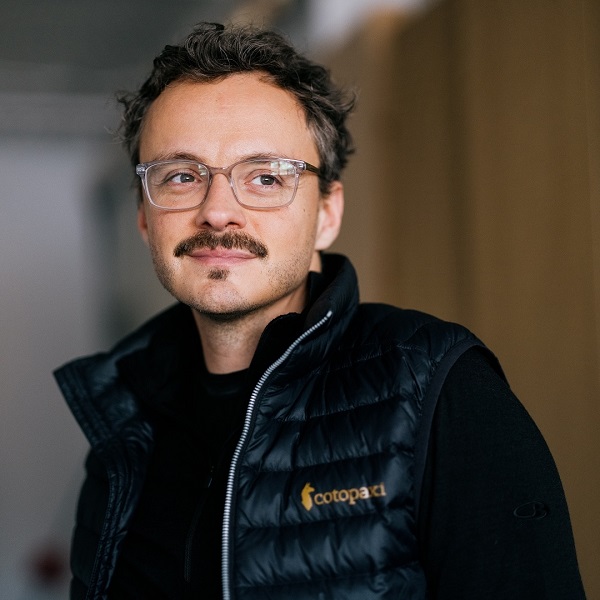As an enterprising physics major at McGill, Daniel Goodfellow, BSc’07, dipped his toe into the Montreal real estate market, buying a downtown condo with a spacious living room that he divided with walls to create an extra bedroom.
Turning the condo into a three-bedroom unit meant he could take in two roommates – and at the end of every month, after paying the mortgage, condo fees and property taxes, he had money left over.
Now, Goodfellow heads Werkliv, a Montreal-based real estate development firm that focuses on affordable student housing.
After buying existing properties and converting them into student housing – including McGill’s former Beatty Hall on Pine Avenue – Werkliv has started putting up its own buildings. Its first new construction is a 19-storey building going up in downtown Montreal and slated for completion next May.
“It’s really exciting to get to build on a street like Peel. It’s a pretty iconic location and it’s really close to McGill,” says Goodfellow, the company’s founder and president. “I think the building is going to be really beautiful.”
Called Le Mildoré, it will contain 70 units of three- and four-bedroom apartments designed and furnished for students. Each bedroom includes a workstation and the parking spots in the basement are only for bikes. Student tenants will pay $885 each in rent excluding utilities.
“One of the things that people don’t talk about enough is how much waste is produced with students moving in and out of their homes,” Goodfellow says. Take a stroll through the Milton-Parc neighbourhood where many McGill students live and you’ll notice that the mountains of garbage on the street near the end of each April is “pretty epic. But I think by furnishing [your units] you avoid all of that,” he adds.
For Werkliv, that means sourcing its own higher-grade furniture that’s easier to repair and has a longer lifespan.
Werkliv says it’s unlike other real estate development companies, partly because it focuses on student housing and takes the time to understand its clientele.
According to Goodfellow, Werkliv regularly surveys its student tenants when they decide not to renew their leases, to get their thoughts on what could be done to improve the apartments. “One year what kept coming up was a lack of storage,” he says. “So, that year, we decided we needed to better understand what the storage needs of our students were. Instead of sort of guessing it, we [asked] students if we [could] come into their homes and count their stuff.”
In interviews with Montreal media, Goodfellow has said that Werkliv eyes a “triple bottom line” – people, planet, and profit.
“One of the things I tell the team is I’m not going to build $1,000 apartments for students…We’ve got to figure out a way to keep this affordable,” says Goodfellow, who calls it a challenge.
Werkliv broke ground on Peel on March 1, 2020, just before the pandemic shutdown closed construction sites in Quebec for weeks.
The pandemic has caused incredible volatility in pricing, says Goodfellow, and the company has faced long wait times in getting raw materials. In October 2020, the company began work on the construction of a six-storey student housing building on Dalhousie University’s campus. It was originally intended to be built out of wood, but Werkliv switched to light steel when the price of wood skyrocketed. A few months later, the same thing happened with the cost of light steel. Fortunately, most of its pricing was locked in pre-pandemic.
Goodfellow grew up in suburban Toronto, attended French school, and came to McGill where he was pushed academically – something he had longed for.
“I got to be surrounded by a bunch of people with a lot of horsepower,” he says. During his first week at McGill, students in his residence talked about the Dostoyevsky book they had just read. “People had actually read the book, and nobody was abashed by it. I liked that. I felt like for the first time I really fit in.”
When he later went apartment-hunting, he was thoroughly unimpressed with what he saw, which is how the condo purchase came to be (with some help from his mother).
Goodfellow began his career in marketing, but continued to buy real estate and earned his real estate broker’s license. With most of his revenue coming from real estate, he quit his day job and took the plunge. He launched Werkliv in 2012 and cut his teeth by managing 29 buildings for a landlord. He also raised money for the first time from friends and family to acquire his first non-condo property, two six-unit buildings next to each other, for students.
“I think fundamentally what I’m building today is what I would have wanted to exist when I was a student…I think if that existed when I was at McGill, I wouldn’t have begged my mom to underwrite a mortgage for me,” says Goodfellow, who also co-teaches a master’s level class on real estate development at McGill’s School of Urban Planning.
While real estate is a far cry from physics, Goodfellow says one of the things his degree gave him is numerical confidence. He has no qualms about building a complex spreadsheet because “I was solving four-dimensional tensors not that long ago in physics exams.”
Werkliv has a 650-bed student housing project slated for Memorial University’s campus in St. John’s, Newfoundland. As Werkliv has grown, it hasn’t held on to its buildings – instead, selling them to have the money to undertake its next projects. But Goodfellow hopes that isn’t always the case.
For Goodfellow, the most rewarding aspect of his work is that it’s a tangible vocation – where there was once a patch of dirt, there is now a building. “I know a lot of people don’t think of development as a noble profession, but there’s a certain nobility to creating homes for people to live in.”


